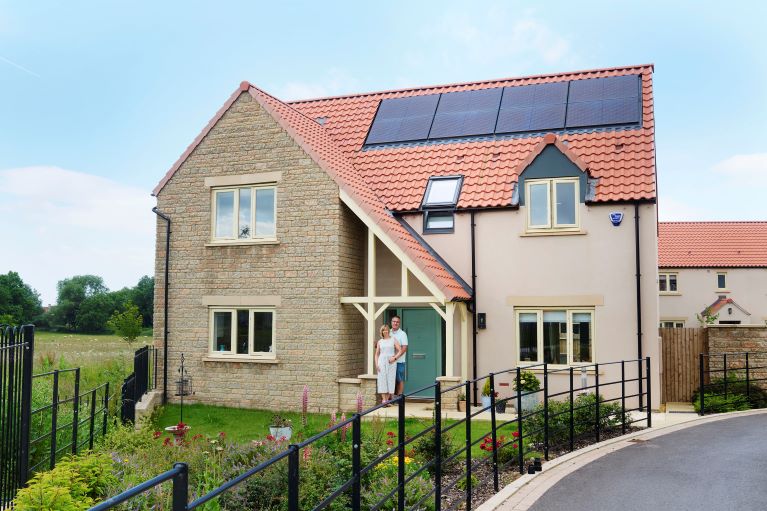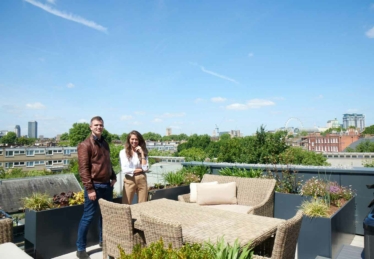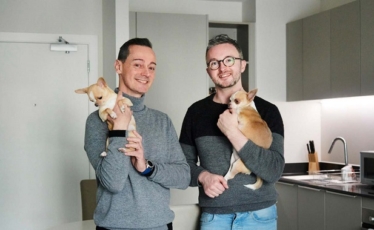‘Our summer energy usage has dropped to £1 in our electric home’
Back in 2021, Juliette and Julian began their search for their next home. Two of their four children had already moved out, with the remaining two at home looking to find their own places soon. So it made sense for them to look for a smaller home to downsize to.
Their plans soon changed when they came across a new-build development from Newland Homes, just outside Bristol. It’s made up of 32 houses that run entirely on electric, and don’t have the gas boilers that so many of us rely on for our heating and hot water. Instead, these homes generate their own power via solar panels, store electricity to use later via batteries, and enjoy the benefits of living with an air source heat pump.
Even though they were aware of the impact things like insulation and an energy-efficient boiler could have on their bills, moving to a green home hadn’t been top of Juliette and Julian’s wishlist. But, the more research they did into the benefits an energy-efficient home could have, the more appealing an all-electric home was becoming. The couple reconsidered their priorities for their next home and, after deciding that they weren’t quite ready for downsizing, an all-electric house became the right move for them.
They were soon to find that their energy bills would plummet, and they’d pay as little as £1 to power their home in the warmer months.
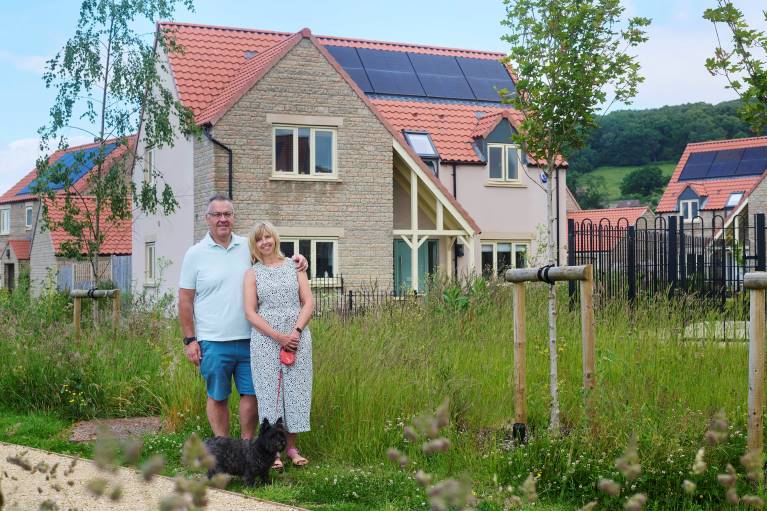
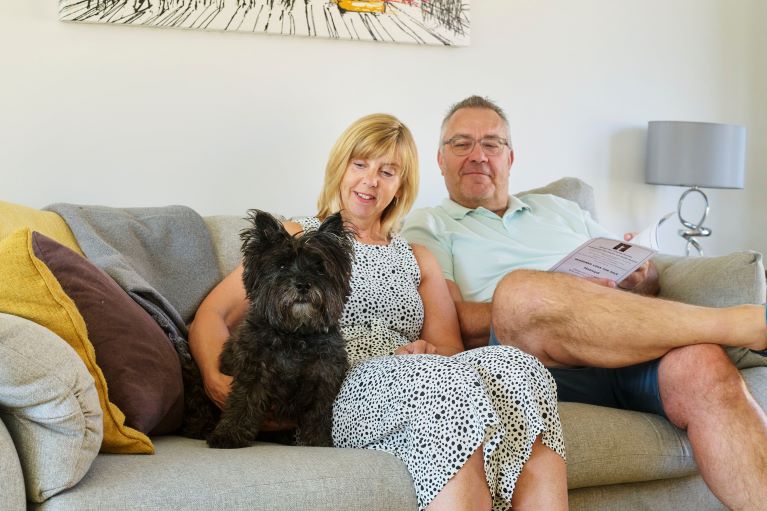
“We were already living quite close by in a house that was built in 2008, so we already knew the benefits of living in a home that was well insulated, and having a new A-rated boiler,” says Juliette. “We’ve lived in much older properties in the past and know how much they cost to heat – and it’s a lot!”
So, over two years after moving in, how are they finding their home and its green features? “In a way, we don’t really think about our heating or energy bills anymore, which I suppose is what you want, really,” says Julian.
“It’s definitely been an education piece, as it needs a bit of a behavioural shift if these are going to be the homes of the future. Neither us or our neighbours knew much about heat pumps and solar panels before we moved here, but it’s been good in that we’ve all been in it together, and finding our way as we go!”
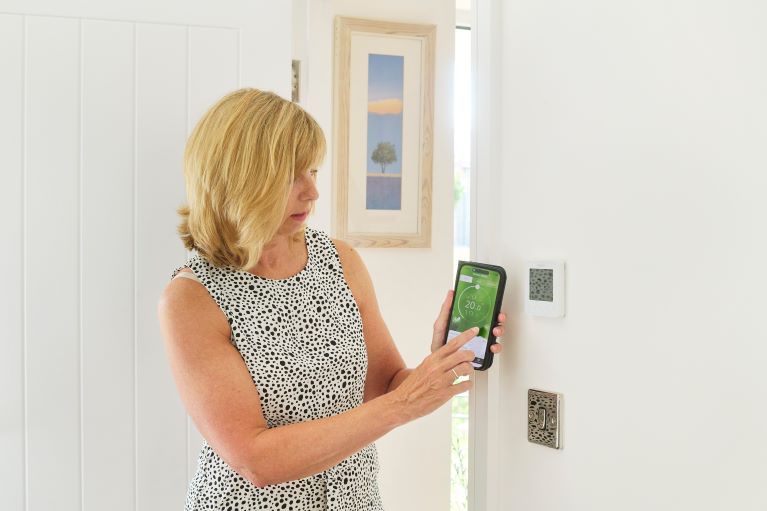
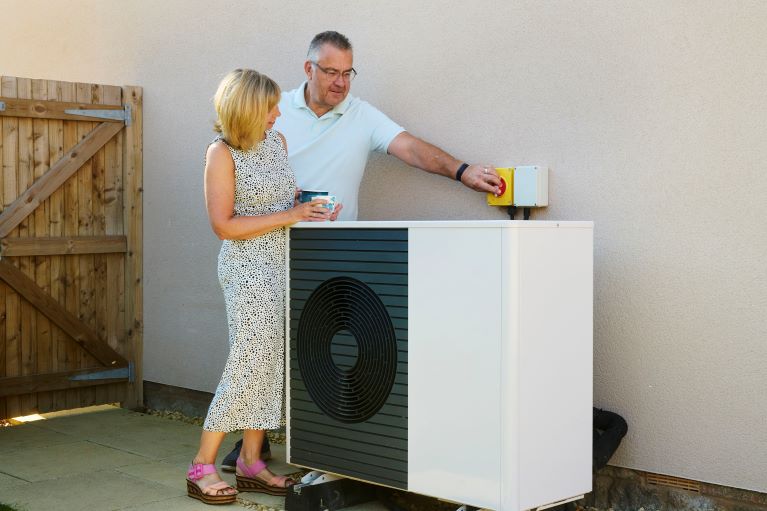
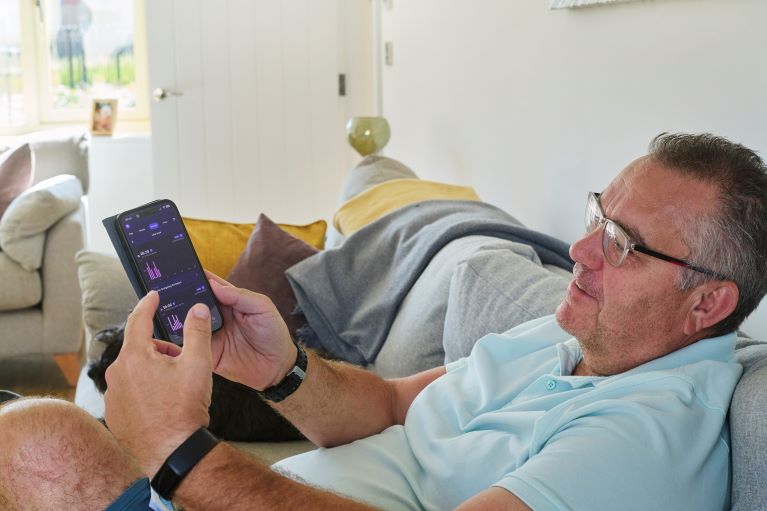
Thankfully, their experience over the past two years has been positive. Julian says: “It’s quite a change from a gas boiler. For instance, if you were to switch off the heating completely and it’s cooled right down, it can take longer to warm up than it would have done when we were using gas. However this shouldn’t be seen as a negative. Instead, it means we get a more comfortable, consistent temperature all the time – rather than feeling cold and having to crank the heating up, like we used to when we had a boiler. It’s easier now, because we don’t have to think about times to turn it on and off. It’s just there, and does its own thing responsively.”
They’ve also had friends and family ask about their new heat pump, and how they find it: “People do ask the things you often see in the media – such as, if they’re noisy! But once you’ve seen it working, you realise that it’s actually really quiet. It lays to rest a lot of the misconceptions you often hear, or things people have picked up that aren’t necessarily true.”
Read 10 common myths about heat pumps, debunked
So, how much are their energy bills?
In their old house – which was still relatively new and well insulated – Julian and Juliette’s direct debit for their energy bills was around £150 a month. “The £150 direct debit we were paying in our old house was before the spike in energy prices that came in 2022, so we’d be paying even more than that were we still there.” But they can see their energy bills drop to as low as £1 in the summer months, when they’re able to generate most of their power via their solar panels. For example, in May 2024, they needed to use just £1 of power from the grid.
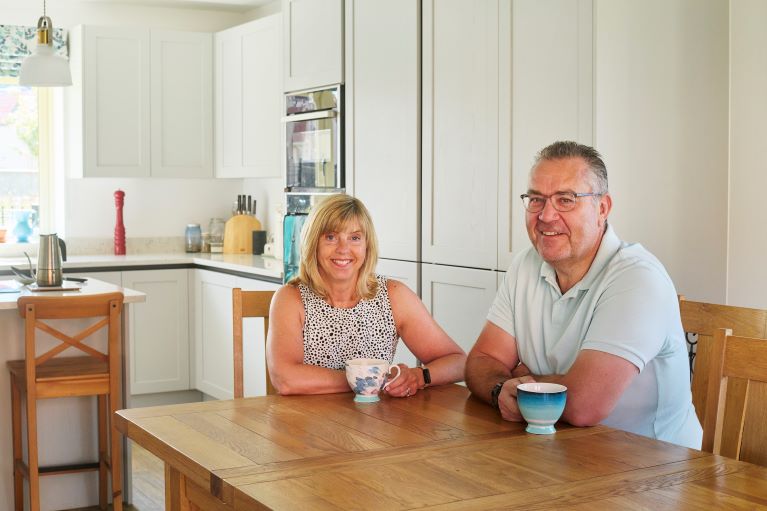
The biggest reason for their drop in energy bills – as well as the home being more energy efficient – is because they’ve been able to generate their own power via solar panels. It doesn’t need strong sunlight for them to work, either – a common myth around solar panels. As long as there’s some brightness, they generate power.
“Now the sun’s out, we’ve been able to generate most of that ourselves using the panels, so we had to pay £1 last month (May 2024), and we’re £3 in credit this month (June 2024). and that’s for all of our usage: cooking, heating, hot water and washing.
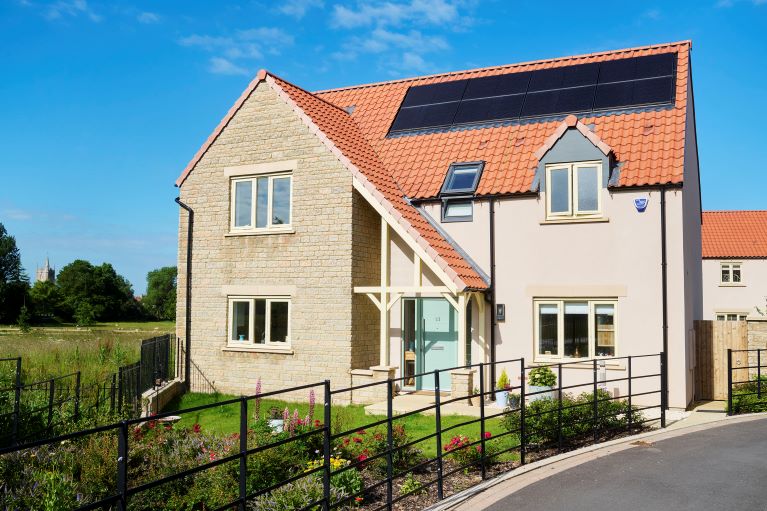
You can check the average energy bill in the UK using our energy bill tracker. At the moment, the average monthly energy bill for a 4-bed detached home with energy efficiency rating D – which is the current average rating in the UK – is £253.
Selling unused power back to their energy supplier
Their smart tariff is specially designed for households using solar panels and batteries, helping people to use and sell the renewable energy they generate in the most-cost effective way. They also downloaded the Octopus app that shows them real-time energy costs.
“The app shows us, really simply, what we’ve used in that day, and what we’ve generated,” Juliette says. “Another really useful thing is we can see how much energy is going to cost at half-hour intervals for the next 24 hours, so we can plan ahead how we use it. For example, in winter, we look for the cheapest time of day, and try and avoid first thing in the morning and early evening – when demand is at its highest and power is most expensive.”
Sometimes Juliette and Julian are even paid to use energy: “We’ve had notifications in the past to say that the cost per unit is in the minus numbers, so we can plan to use power when we’re effectively being paid to use it. We like to think of it as though we’re being paid to do our washing!” laughs Juliette.
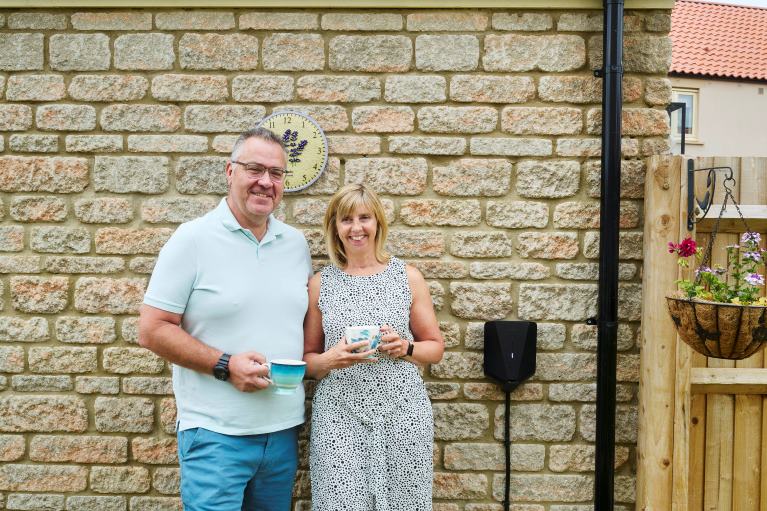
And as for the savings on their energy bills? “We couldn’t quite believe how much we were saving. It really feels like the homes are set up to help people be more considered about the environmental impact of our everyday lives, which is great. We can’t all be expected to completely overhaul our lives when it comes to being greener, we have to be realistic. But we want to do what we can, and this house really makes us feel like we’re doing our bit to help.”
Disclaimer: Rightmove is engaged in paid advertising with Octopus Energy. However, any reference to Octopus Energy in this editorial content is based on the testimonial provided by the consumers and is not a direct advertisement or endorsement for Octopus Energy.
